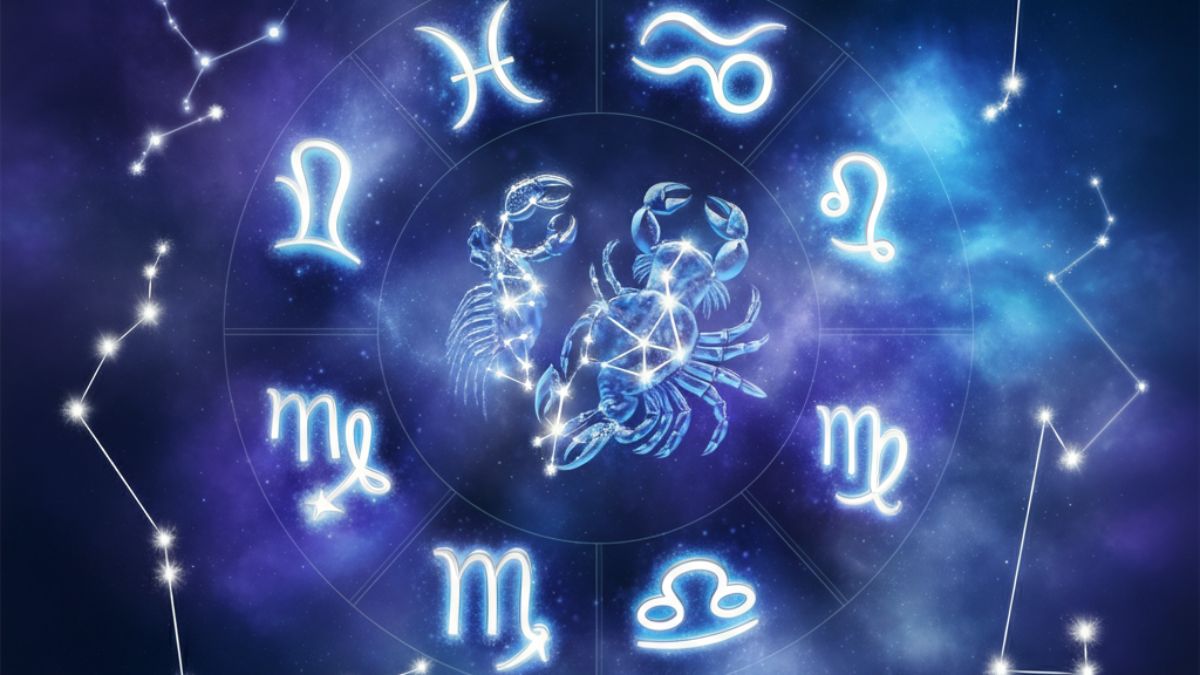Are you curious about the stars and how they might shape your life? Astrology, a practice spanning thousands of years, has drawn people from all walks of life eager to understand the mysteries of the cosmos. Whether you’re a skeptic or a firm believer, astrology weaves together science, symbolism, and intuition to offer insights into our emotions, relationships, and life paths.
This guide will introduce you to the fundamentals of astrology, including birth charts, zodiac signs, planetary influences, and how you can start exploring astrology in your daily life. By the end, you’ll have the tools to view your horoscope with fresh eyes and maybe even interpret a birth chart.
What Is Astrology, really?
Astrology is the study of how celestial bodies, such as planets and stars, influence events on Earth and human behavior. Its roots trace back to ancient civilizations like Babylon, Egypt, and Greece, where astrology played a role in governance, agriculture, and even medicine.
At its core, astrology revolves around the idea that celestial events mirror or influence events on Earth, encapsulated by the phrase “as above, so below.” Modern astrology personalizes this principle through birth charts and daily forecasts, helping individuals explore their personalities, strengths, challenges, and potential.
But before you dismiss astrology as pseudoscience, consider this: astrology is less about predicting the future and more about offering a framework to understand yourself and your choices better.
Understanding the Building Blocks of Astrology
To make sense of astrology, you need to familiarize yourself with some key components:
1. The Zodiac Signs
The zodiac consists of 12 signs, each representing a distinct set of personality traits and tendencies. These signs are divided based on the Sun’s position relative to the Earth during specific times of the year. Here’s a quick summary of the zodiac signs and their typical traits:
- Aries (March 21 – April 19): Bold, confident, and independent.
- Taurus (April 20 – May 20): Grounded, practical, and loyal.
- Gemini (May 21 – June 20): Curious, adaptable, and chatty.
- Cancer (June 21 – July 22): Emotional, nurturing, and intuitive.
- Leo (July 23 – August 22): Charismatic, creative, and confident.
- Virgo (August 23 – September 22): Analytical, detail-oriented, and organized.
- Libra (September 23 – October 22): Charming, fair, and relationship-focused.
- Scorpio (October 23 – November 21): Passionate, determined, and mysterious.
- Sagittarius (November 22 – December 21): Adventurous, optimistic, and philosophical.
- Capricorn (December 22 – January 19): Ambitious, disciplined, and responsible.
- Aquarius (January 20 – February 18): Visionary, unconventional, and humanitarian.
- Pisces (February 19 – March 20): Empathetic, artistic, and dreamy.
These signs provide the foundation for understanding how the Sun influences core aspects of your personality.
2. Birth Chart (Natal Chart)
A birth chart is like your personal astrological fingerprint. It’s a map of the sky at the exact moment and location of your birth. While your Sun sign (your zodiac sign) is just one part of the story, a birth chart reveals a much deeper picture by incorporating:
- The Sun: Your identity and ego.
- The Moon: Your emotions and inner self.
- The Ascendant (Rising Sign): How others perceive you.
- Planets: Each planet governs a specific aspect of life, such as communication (Mercury) or love (Venus). Their positions at the time of your birth further define your personality.
- Houses: Divisions in the birth chart that represent different areas of life, such as career, family, and relationships.
Your birth chart answers, “Who am I?” on a cosmic level, giving you insights into your strengths, challenges, and destiny.
3. Planetary Influences
The planets play an essential role in astrology. Each planet has unique energy and attributes, influencing various aspects of our lives. Here are the basics:
- The Personal Planets: Sun, Moon, Mercury, Venus, and Mars shape your core personality, communication style, and relationships.
- The Social Planets: Jupiter and Saturn cover growth, discipline, and how we interact with society.
- The Outer Planets: Uranus, Neptune, and Pluto bring generational influences, innovation, and transformation.
For example, Mercury retrogrades (a hot topic in pop culture!) is often associated with communication mishaps, delays, and misunderstandings. While it can feel chaotic, it’s also a good time to revisit plans and reflect on the past.
4. Transits and Horoscopes
Astrology isn’t static. Celestial bodies are always moving, and their positions impact our daily lives. Transits happen when a planet’s current position interacts with your birth chart, creating opportunities for growth or challenge.
Horoscopes, often found in magazines or online, are based on these celestial movements and provide generalized predictions for each zodiac sign.
Why Do People Turn to Astrology?
Astrology resonates with people for many reasons. Unlike rigid tests or diagnoses, astrology offers a fluid framework for self-exploration. It opens doors to understanding your emotions, relationships, and life patterns more deeply.
Here are some key benefits of exploring astrology:
- Self-Awareness: Astrology can affirm traits you already recognize in yourself and highlight hidden strengths.
- Guidance: It provides tools for navigating challenges and making decisions, though you remain in control of your choices.
- Community: Astrology creates shared language and connection among people interested in self-improvement and reflection.
- Perspective: Life’s ups and downs often feel more manageable when viewed through a cosmic lens.
How to Start Your Astrology Journey
If you’re ready to dip your toes into the astrological waters, here’s how to get started:
Step 1: Determine Your Birth Chart
Plenty of online tools can generate your personalized birth chart for free. All you need is your birth date, time, and location. Try platforms like Astro.com or Co-Star for an in-depth analysis.
Step 2: Learn About the Zodiac Signs
Familiarize yourself with the traits of the 12 zodiac signs. Even learning about other people’s Sun signs can spark conversations and connections.
Step 3: Follow Daily Horoscopes (But with a Grain of Salt)
Daily horoscopes are a fun introduction to astrology but are often generalized. Use them as a lighthearted guide, not a definitive forecast.
Step 4: Study Planetary Movements
Pay attention to mercury retrogrades, full moons, and eclipses to see how they influence your mood, productivity, and relationships.
Step 5: Connect with the Astrology Community
Social media, podcasts, and local astrology meet-ups are fantastic ways to learn, share, and grow within this fascinating field. Popular astrologers like Chani Nicholas and Susan Miller often share accessible, insightful content.
Embark on Your Astrological Adventure
Astrology is a timeless tool for reflection, growth, and connection. Whether you’re seeking clarity in career decisions, looking to improve relationships, or just curious about what the stars have to say, astrology can guide you with its rich tapestry of insights.
Remember, astrology isn’t about fate or fixed outcomes. It’s about understanding yourself better, making informed choices, and exploring new ways to approach life.
Curious about what your birth chart reveals? Start exploring today! Your stars are waiting to tell their story.
FAQs About Astrology
1. What is astrology?
Astrology is the study of how the positions and movements of celestial bodies like the sun, moon, and planets can influence human behavior, personality traits, and life events. It has been practiced for thousands of years across various cultures.
2. Is astrology a science?
Although astrology is not considered a science, it is a complex system of analysis and interpretation rooted in ancient traditions. Many people find value in it as a tool for self-discovery and guidance.
3. Can astrology predict the future?
Astrology doesn’t predict exact outcomes or guarantee future events. Instead, it provides insights into cyclical patterns and influences that may shape your experiences, enabling you to make more informed decisions.
4. What is a birth chart?
A birth chart, also called a natal chart, is a map of the sky at the exact moment and location of your birth. It serves as a blueprint of your personality, strengths, challenges, and life potential based on astrological principles.
5. How often should I check my horoscope?
This is entirely up to you! Some people read their horoscopes daily for general guidance, while others prefer monthly or weekly insights. Remember, the key is to treat it as a reflective tool, not a rulebook.
6. Do I need to believe in astrology for it to work?
Astrology isn’t about belief—it’s about exploration. Whether you approach it with curiosity or skepticism, many find the insights offered by astrology to be meaningful and thought-provoking.
7. Where should I begin if I’m new to astrology?
Start with the basics! Learn about your sun, moon, and rising signs—they form the foundation of your astrological profile. Then, gradually explore more complex concepts like houses, aspects, and planetary transits.







